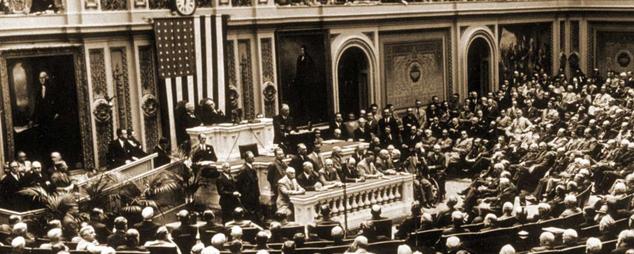Although seven U.S. presidents petitioned Congress to take action and Congress itself introduced more than 200 anti-lynching bills between 1882 and 1968, the U.S. Congress never made lynching a federal crime. But some of the earliest Gallup polls conducted found majorities of Americans consistently supporting the passage of such a bill, including in the first measure about lynching in 1937.
| Yes | No | ||||||||||||||||||||||||||||||||||||||||||||||||||||||||||||||||||||||||||||||||||||||||||||||||||
|---|---|---|---|---|---|---|---|---|---|---|---|---|---|---|---|---|---|---|---|---|---|---|---|---|---|---|---|---|---|---|---|---|---|---|---|---|---|---|---|---|---|---|---|---|---|---|---|---|---|---|---|---|---|---|---|---|---|---|---|---|---|---|---|---|---|---|---|---|---|---|---|---|---|---|---|---|---|---|---|---|---|---|---|---|---|---|---|---|---|---|---|---|---|---|---|---|---|---|---|
| % | % | ||||||||||||||||||||||||||||||||||||||||||||||||||||||||||||||||||||||||||||||||||||||||||||||||||
| National adults | 72 | 28 | |||||||||||||||||||||||||||||||||||||||||||||||||||||||||||||||||||||||||||||||||||||||||||||||||
| Mid-Atlantic | 79 | 21 | |||||||||||||||||||||||||||||||||||||||||||||||||||||||||||||||||||||||||||||||||||||||||||||||||
| West Central | 78 | 22 | |||||||||||||||||||||||||||||||||||||||||||||||||||||||||||||||||||||||||||||||||||||||||||||||||
| East Central | 77 | 23 | |||||||||||||||||||||||||||||||||||||||||||||||||||||||||||||||||||||||||||||||||||||||||||||||||
| New England | 75 | 25 | |||||||||||||||||||||||||||||||||||||||||||||||||||||||||||||||||||||||||||||||||||||||||||||||||
| Rocky Mountain | 75 | 25 | |||||||||||||||||||||||||||||||||||||||||||||||||||||||||||||||||||||||||||||||||||||||||||||||||
| Pacific Coast | 65 | 35 | |||||||||||||||||||||||||||||||||||||||||||||||||||||||||||||||||||||||||||||||||||||||||||||||||
| South | 57 | 43 | |||||||||||||||||||||||||||||||||||||||||||||||||||||||||||||||||||||||||||||||||||||||||||||||||
| Gallup, Oct. 30-Nov. 4, 1937 | |||||||||||||||||||||||||||||||||||||||||||||||||||||||||||||||||||||||||||||||||||||||||||||||||||
Lynching is a violent killing or hanging of an individual by a mob over an allegation that has not been confirmed by a court or judicial process, and was employed by whites in the 19th and 20th centuries to instill fear in blacks. According to a report from the Equal Justice Initiative, more than 4,000 blacks were lynched between 1877 and 1950.
The country's history with lynching is being re-examined with the opening in April of the National Memorial for Peace and Justice in Montgomery, Alabama. Earlier this month, Rev. Jesse Jackson, flanked by two members of Congress, announced a renewed push to finally outlaw lynching.
Gallup asked about anti-lynching legislation in various ways over the course of 1937, with one poll in the fall finding nearly three in four Americans (72%) supporting anti-lynching legislation. Support was lowest in the South compared with the other regions, but even there a small majority supported an anti-lynching bill. That year, an anti-lynching bill had passed in the House of Representatives but was held up during a filibuster in the Senate. First lady Eleanor Roosevelt sat in the Senate Gallery for days to silently protest the filibuster.
The Senate never did pass such a bill, though the House passed three pieces of anti-lynching legislation between 1920 and 1940. In 2005, the U.S. Senate passed a resolution to apologize for its historical inaction.
Southern members of Congress were instrumental in rebuffing past anti-lynching legislation, arguing that it should be handled at the state level. In 1950, the last time Gallup polled on the topic, Americans were split over which level of government should deal with lynching, with 45% saying the federal government should step in to deal with it and 46% saying it should be left to state and local governments.
| Federal government | State and local governments | Other/No opinion | |||||||||||||||||||||||||||||||||||||||||||||||||||||||||||||||||||||||||||||||||||||||||||||||||
|---|---|---|---|---|---|---|---|---|---|---|---|---|---|---|---|---|---|---|---|---|---|---|---|---|---|---|---|---|---|---|---|---|---|---|---|---|---|---|---|---|---|---|---|---|---|---|---|---|---|---|---|---|---|---|---|---|---|---|---|---|---|---|---|---|---|---|---|---|---|---|---|---|---|---|---|---|---|---|---|---|---|---|---|---|---|---|---|---|---|---|---|---|---|---|---|---|---|---|---|
| % | % | % | |||||||||||||||||||||||||||||||||||||||||||||||||||||||||||||||||||||||||||||||||||||||||||||||||
| National adults | 45 | 46 | 9 | ||||||||||||||||||||||||||||||||||||||||||||||||||||||||||||||||||||||||||||||||||||||||||||||||
| Gallup, Jan. 8-13, 1950 | |||||||||||||||||||||||||||||||||||||||||||||||||||||||||||||||||||||||||||||||||||||||||||||||||||
View the original 1937 Gallup news release on anti-lynching legislation.
Read more from the Gallup Vault.





